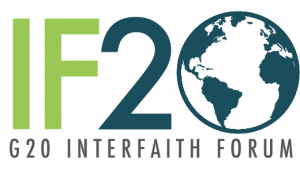The African Indigenous Philosophy of Ubuntu
A gathering of scholars and philosophers of traditional Southern African thought and philosophy
What constrained so many to choose to forgive rather than to demand retribution, to be magnanimous and ready to forgive rather than to wreak revenge was Ubuntu.”
NEW YORK CITY, NEW YORK, UNITED STATES, February 5, 2024 /EINPresswire.com/ -- The Anti-Racism Initiative of the G20 Interfaith Forum (IF20), the world’s leading organization focused on the intersection of faith and policy, is gathering scholars and philosophers of traditional Southern African thought to discuss “Ubuntu,” a traditional philosophy that many across the globe can learn from. — Isaiah Zimba Chabala, Former UN Ambassador for Zambia
A central focus of discussion at the free webinar will be the to highlight the meaning of the term, along with its role in African philosophy, its historical roots, and its various applications in the public sphere in Southern Africa.
In a statement, webinar organizers said Ubuntu differs drastically from many Western ideologies, and therefore has different results in societies:
“Ubuntu … places an imperative emphasis on the importance of groups or communal existence as opposed to the Western emphasis on the individual and the individual’s human rights,” they said. “Ubuntu prides in the idea that the benefits and burdens of the community must be shared equitably, and the interests of the community must be put ahead of the interests of the individual.”
Webinar organizers further elaborated that Ubuntu’s emphasis on the one being part of a greater whole can lend itself to promoting peace and cohesion, citing the philosophy’s use in post-Apartheid South Africa:
''In South Africa, Desmond Tutu, who was the Chairperson of the Truth and Reconciliation Commission (TRC), which was formed to investigate and deal with the apartheid atrocities in the 1990s, demonstrated in his final report that it took Ubuntu for people to confess, forgive and forget,” they said. “…What constrained so many to choose to forgive rather than to demand retribution, to be magnanimous and ready to forgive rather than to wreak revenge was Ubuntu.”
This particular form of African humanism, encompassing gentleness, hospitality, empathy, generosity and more, provides much that the rest of the world can learn from, according to webinar participant Isaiah Chabela.
“The presentation will highlight the vital contribution of the philosophy of Ubuntu to the unity, solidarity and peaceful coexistence of people at national and regional levels,” Chabela said, “as well as in promoting friendly relations with neighbors and foreigners, including hostile colonial, racist apartheid regimes, and peaceful resolution of related social, political problems and conflicts.”
Dr. Arline Woodbury, another panelist at the upcoming webinar, has already found practical applications of Ubuntu in the Western Hemisphere.
“My community work as a psychiatrist taught me the importance of teamwork and the collective ‘WE,’” Woodbury said. “The only way to avoid professional burnout was through effective teamwork. I needed a huge team … It truly ‘takes a village’ to solve many of our community problems. We must be able to embrace a shared communal responsibility for one another.”
The virtual meeting will take place on February 8th, 2024 at 2 PM EST.
Register for the free webinar at https://bit.ly/ubuntu-webinar
Speakers will include:
• Isaiah Zimba Chabala – Former Ambassador for Zambia to the UN, Founder and President of Visionary Empowerment, Inc., and President of Divine Empowerment Mission.
• Dr. Remi Alapo – Professor at the City University of New York (CUNY), Director of the Institute for Peace and Leadership, Inc., Ambassador for Peace with the Universal Peace Federation (UPF), and Civil Society Representative at the United Nations.
• Fainos Mangena – Dean of the Faculty of Arts and Humanities at the University of Zimbabwe, focusing on Philosophy and Ethics.
• Dr. Arline Woodbury, MD – Psychiatrist, researcher, and African American community advocate.
About the G20 Process
The Group of Twenty, or G20, is the premier forum for international economic cooperation,
bringing together the leaders of Earth’s most prosperous economies. Collectively, G20
members represent around 80 percent of the world’s economic output, two-thirds of the
global population and three-quarters of international trade. Throughout the year,
representatives from G20 countries gather to discuss financial and socioeconomic issues as
well as broader humanitarian issues targeted by the UN’s Sustainable Development Goals.
About the G20 Interfaith Forum
The G20 Interfaith Forum seeks global solutions by collaborating with religious thought
leaders and political representatives to help shape the overall G20 agenda. It draws on the
vital roles that religious institutions and beliefs play in world affairs, reflecting a rich
diversity of institutions, ideas, and values. Through its extensive network of networks, it
helps prioritize key global policy goals and point toward practical means of implementation
at every level of society.
For more information, please visit www.g20interfaith.org.
Marianna Richardson
G20 Interfaith Forum
email us here
Visit us on social media:
Facebook
Twitter
LinkedIn
Instagram
YouTube

